Plastic Free July is becoming more popular as we learn more about the environmental effects of plastic waste to our waterways, animals and humans. Plastic Free July is the birth child of the Plastic Free Foundation that began in 2011. Originally starting in Australia, it has swept the world in a number of ways that makes us take a closer look at our plastic consumption and waste. In fact, “In July 2019 alone, an estimated 250 million people across the globe took part in the challenge from 177 countries.”
While it might be nearly impossible for you to become completely plastic free in one month, there are many things we can do to significantly reduce our plastic waste. Once you start noticing how easy some plastics are to avoid, it will become the norm for you and your family.
Where Can I Start?
One of the most popular plastics people avoid are plastic bags and film. Americans use at least 100 BILLION plastic bags a year! So many of us are in the habit of grabbing our reusable bags (or leaving a pile in the car) before heading to the grocery store already. However, there might be a few stores we run in to pick up an item or two and forget a reusable bag.

There are an abundance of places people “run in to grab something” daily. The gas station, Walgreens, Target or even the hardware store. While a consumer uses a single plastic bag for just twelve minutes, it can take over 1,000 years to decompose in the landfill! Get in the habit of taking a reusable bag into the store with you even if it’s only for a few items!
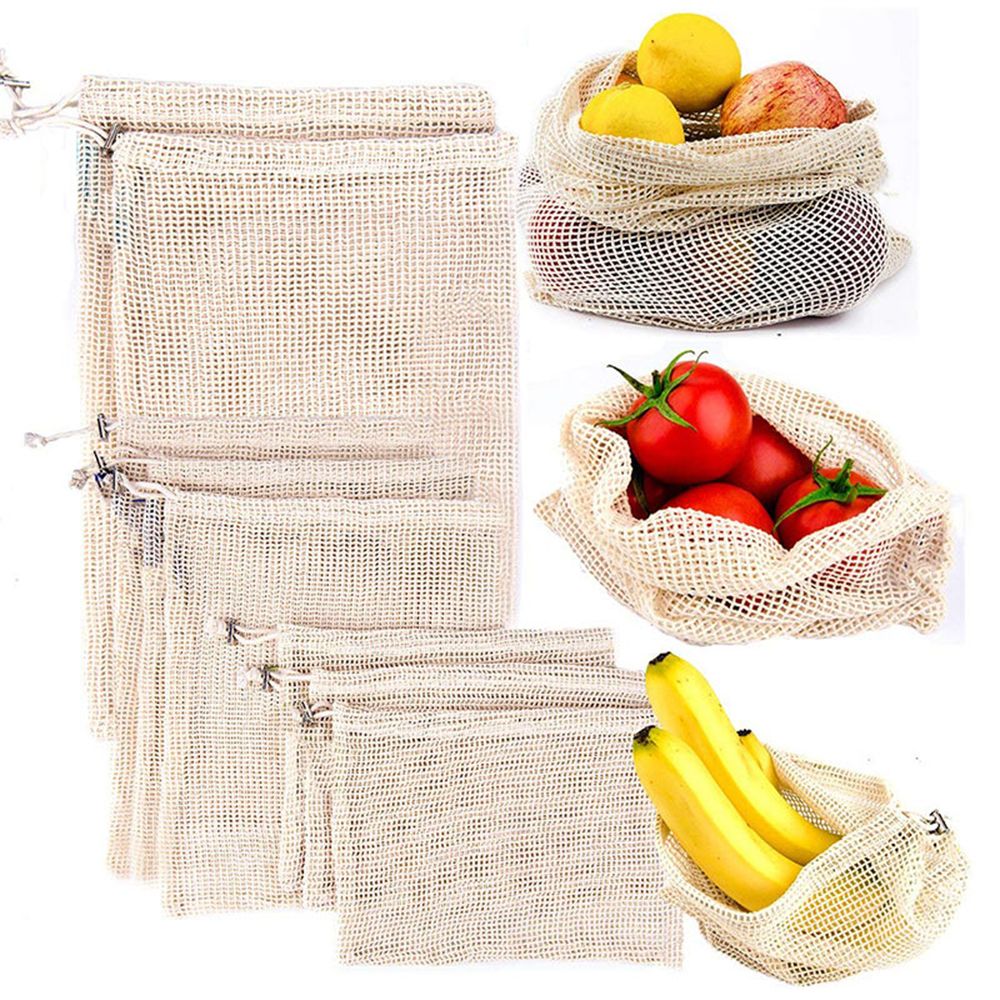
Another culprit to plastic waste are produce bags. They’re so conveniently placed around the store, ready for what might be just two onions. Skip these plastic bags and simply place your produce in your cart. Most fruit and vegetables have a natural, protective cover that you will discard anyways. If you’re set on bagging your produce, you can invest in reusable produce bags that come in all different sizes. They’re easy to use and don’t interfere with the weight of your produce when calculating costs.
Remember, plastic bags cannot be recycled in our Blue Bins because they are not a plastic bottle or container, and they do not hold their shape. If you put plastic bags and film in your Blue Bin, once they reach the Materials Recovery Facility (MRF), they will wrap around sorting machinery gears stopping the entire sorting process until a worker can cut the bags out manually. This is very dangerous, causes a lot of facility shut downs and is costly.
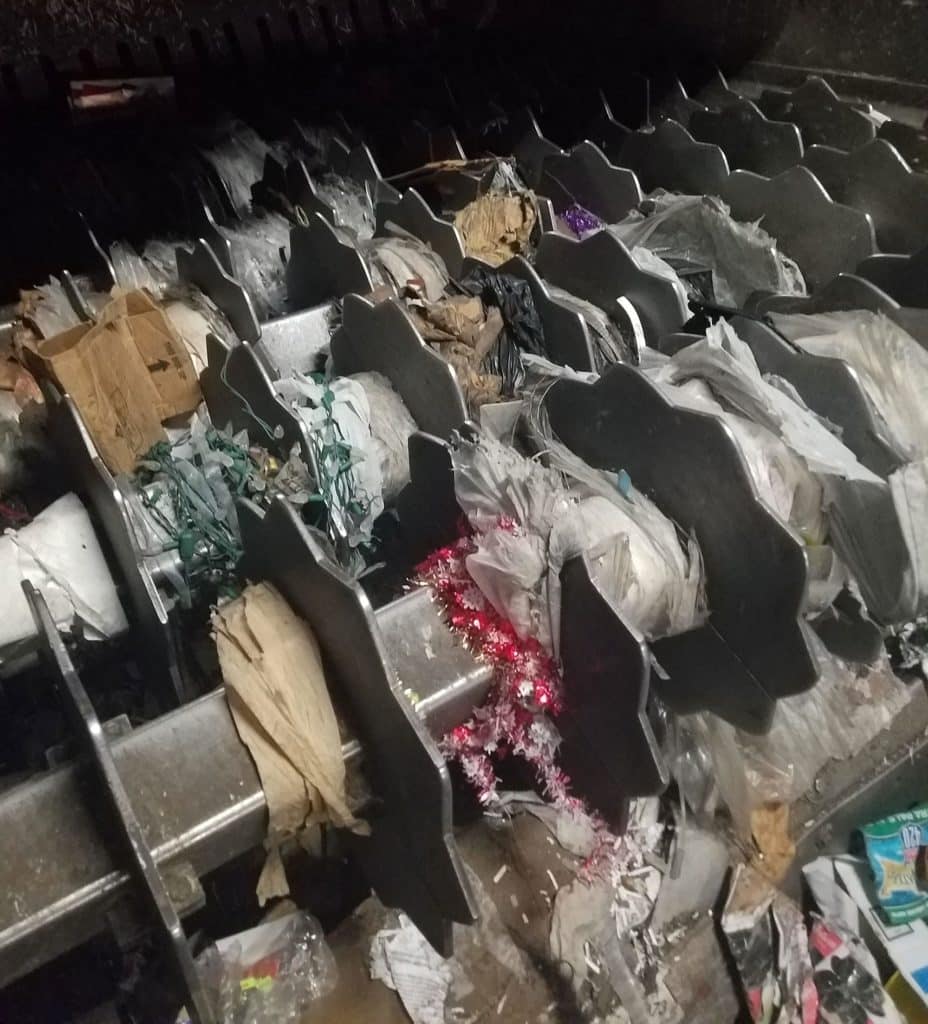
Plastic bags, film, hoses, holiday lights and decorations are called “Tanglers.” Tanglers wrap around the sorting gears and cannot move until they are cut out by a worker. The picture to the right shows jammed gears at our local MRF in Hazelwood, MO.
Cutting Out Other Plastics During July
Investing in reusable utensils will greatly decrease the amount of disposable plastic utensils that you may be using for various reasons. You can find bamboo or metal sets in all sizes and shapes. These are easy to keep on hand and will help you avoid disposable plastic waste. Support St. Louis’ local earthday365 organization and purchase one of their bamboo cutlery sets that helps support the Green Dining Alliance.
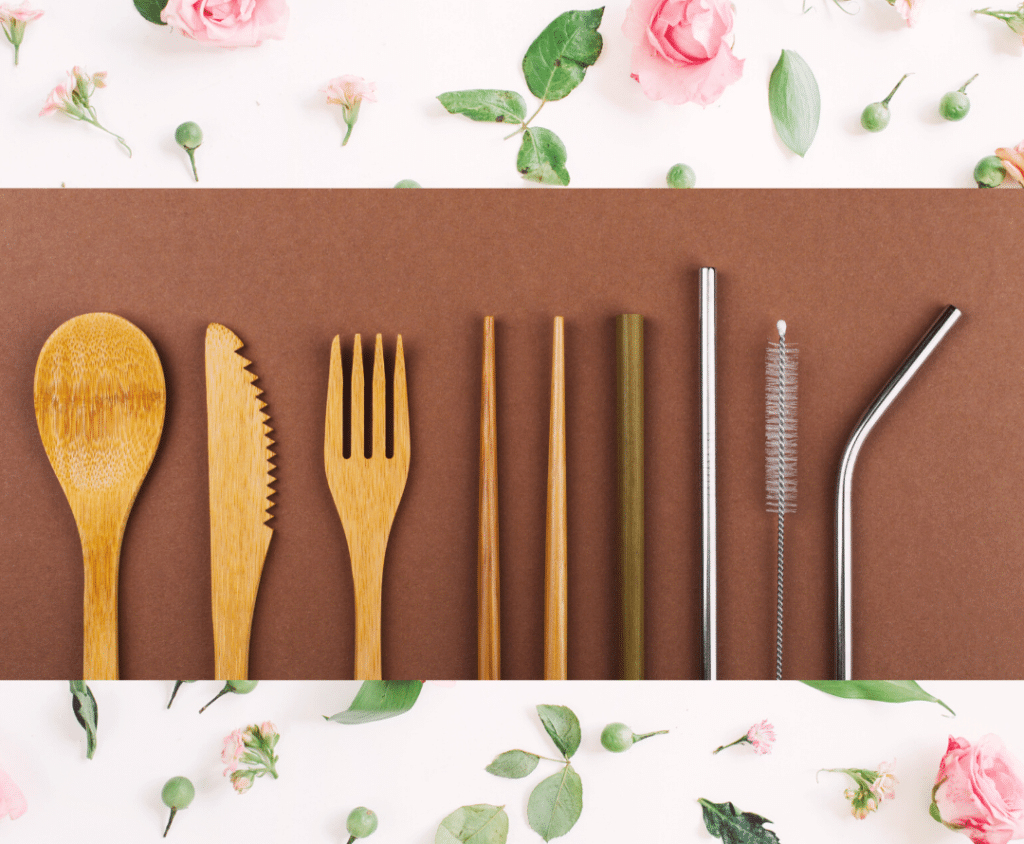
There are some estimates that in the United States alone, there are over 40 BILLION plastic utensils used and discarded every year! Most of these plastic utensils, just like plastic bags, are used once and then sent to the landfill.
Plastic utensils cannot be recycled in our Blue Bins because they are too small to be recovered during the sorting process and are usually made up of different types of plastic. If they make their way to the MRF, they can fall through the cracks of the machines, jam the gears, or even worse, hurt a worker on the sorting line. Simpy said, they’re not recyclable at all.
Skip the Straw

We’ve all heard this saying before, but just like our enormous plastic utensil consumption issue, these singular straws add up and have devastating effects on nature and animals also. Typically, they come hand in hand if you’re grabbing a meal to go.
Straws, like utensils, are too small to be recovered at the MRF. In addition to being too small, straws are very light and will often blow out of trash cans, dumpsters or trash trucks during transportation. From there, they end up in our waterways, which join other litter that will eventually end up in the Gulf of Mexico.
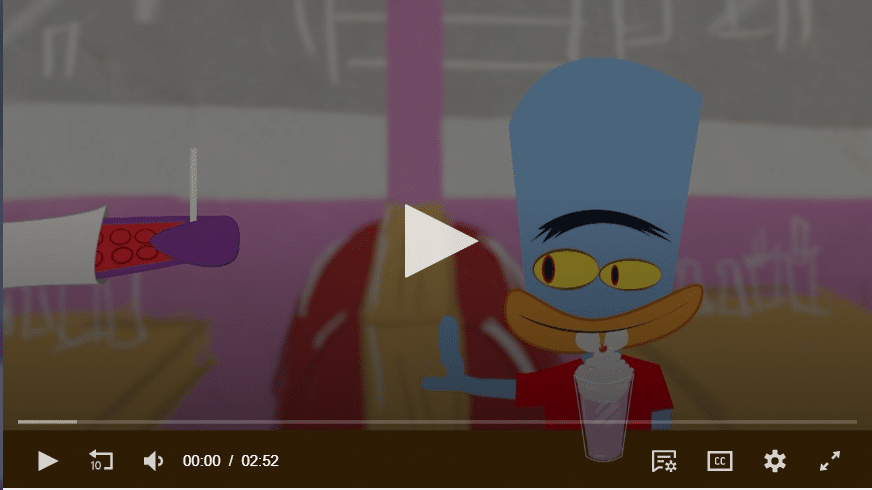
This PBS video, “Skip the Straw,” has some valuable information about why it’s important to say “No” to the straw.
Time For a Break
Did you know paper coffee cups aren’t recyclable in your Blue Bin? Yep, that’s right! Your to-go coffee cups have a plastic liner on the inside that prevent them from being recyclable (same with ice cream cartons, too!). Next time you head out for a cup of joe, grab your reusable mug. Some local coffee shops even offer a discount if you bring you own mug!

before putting the cup and lid in the trash!
If you prefer iced coffee that comes in a plastic cup, you can recycle the plastic cup once it’s empty and the straw is removed. Just like with your hot coffee, some stores will provide you with a discount to bring in your own reusable coffee mug, whether hot or iced!
Just the Beginning
Even though these small steps are so simple, you can have a BIG impact on how much waste you generate. For more ideas on how to get involved in Plastic Free July, their website has a plethora of ways to reduce waste in your everyday life.







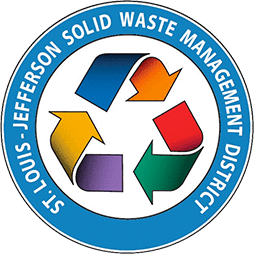



6 Comments
Right now cloth bags are not allowed
I always take the plastic bags to the store recycling bin. Is this acceptable? I have been doing this for a long time and would hate to think they are not being recycled in some way.
Hi Terry, thanks for your question! Correct, most stores aren’t allowing reusable bags to be brought in for groceries yet. An alternative to having to use plastic bags is to bag your groceries at your car. Not all, but a lot of stores have opened up their plastic bag and film recycling bins to the public. Thanks for recycling responsibly!
Are the grocery stores still recycling the plastic bags?
Hello Ralph! We can’t attest for all grocery stores, they will open the collection bins when they feel it’s safe. We’ve gotten word that some Schnucks stores have their bins out. We’d suggest checking with your local grocery store that you shop at. Thank you for recycling responsibly!
Can we use cloth bags if we bag our own groceries?
Hello Cheryl, thanks for your question! Most stores have their own regulations on bringing in your own bags so you would need to check with your local grocery store. If you cannot bring in your own bags, you can ask the cashier/bagger to place your items back in your shopping cart where you can bag them at your car using your cloth bags. The baggers are usually very grateful for the short break, too! Thanks for recycling responsibly and using your own bags!